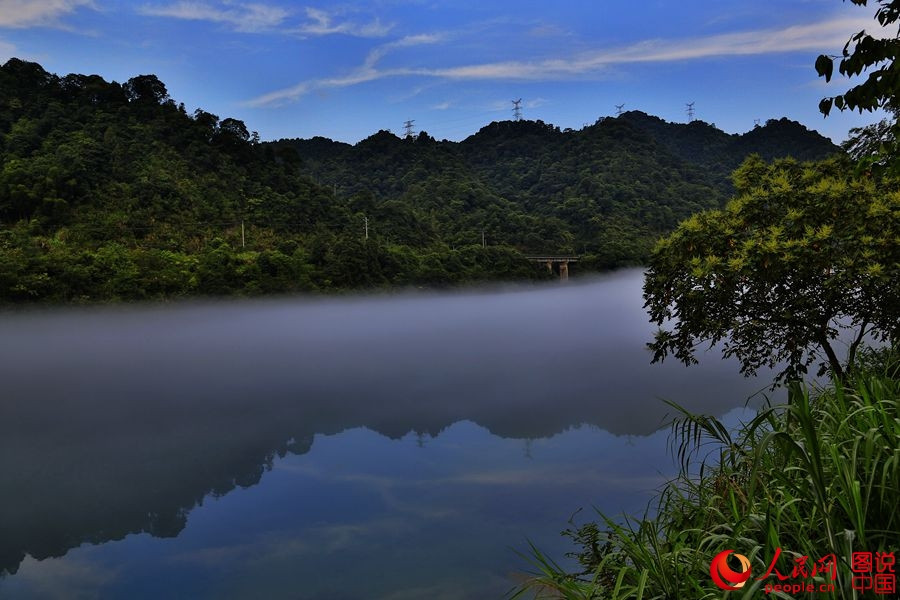 Vintage cars show kicks off in London
Vintage cars show kicks off in London
 Gorgeous scenery in NE China
Gorgeous scenery in NE China
 Picturesque Barkol grassland in Xinjiang
Picturesque Barkol grassland in Xinjiang
 Small Wild Goose Pagoda - A World Cultural Heritage Site along the Silk Road
Small Wild Goose Pagoda - A World Cultural Heritage Site along the Silk Road
 Maritime Silk Road Luxuries of the Han Dynasty
Maritime Silk Road Luxuries of the Han Dynasty
 Ciao! Chinese beauties!
Ciao! Chinese beauties!
 An eye feast: BFA freshmen registration
An eye feast: BFA freshmen registration
 Top 10 most lavish weddings
Top 10 most lavish weddings
 Most amazing chi-pao beauties
Most amazing chi-pao beauties
 Chinese lingerie brand arrives in Las Vegas
Chinese lingerie brand arrives in Las Vegas
NEW DELHI, Sept. 19 -- As Chinese President Xi Jinping wrapped up his state visit to India on Friday, the two Asian giants have ushered in a new era in the development of bilateral relations.
During Xi's three-day stay in the South Asian country, the two largest developing countries and most populous nations of the world pledged to forge a closer partnership.
Their commitment to regional and global peace as well as common development and prosperity will bring real benefit not only to their combined 2.5 billion people, but also to those living beyond their borders.
TWIN ANCHORS OF PEACE
Xi arrived in India on Wednesday for his first trip to the southern neighbor since he took office in March 2013, which was also the first state visit in eight years by a Chinese president to the country.
On the border issue, a topic constantly hyped by Western media and politicians, Xi suggested that the two sides properly manage their disputes and jointly maintain border tranquility while seeking via friendly consultations a fair and reasonable solution both can accept.
"We should not let the border issue affect our bilateral relations," stressed the Chinese president.
For his part, Indian Prime Minister Narendra Modi said his country is willing to work with China to advance negotiations in this regard and find a solution at an early date.
He reiterated that Tibet is an integral part of China and that India will not allow Tibetans to conduct anti-China political activities on its soil.
Meanwhile, Xi voiced China's support for India to become a full member of the Shanghai Cooperation Organization (SCO), an increasingly significant regional cooperation mechanism.
China and India should be "twin anchors" of regional peace so as to build an Asia-Pacific security architecture that is open, transparent, inclusive and based on equality, said the Chinese president.
"When China and India join hands for cooperation, it will benefit not only the two countries but also the entire Asia and the world at large," said Xi when delivering a speech at the Indian Council of World Affairs.
He said China-India relations have gone well beyond the bilateral scope and have assumed broad regional and global significance as the two countries have become two major forces in the world's multi-polarization process.
The two Asian neighbors, he proposed, should become global partners for strategic coordination and jointly strive for a just and equitable international order.
"China and India have a combined population of over 2.5 billion," he said. "If we speak with one voice, the whole world will listen, and if we join hands, the whole world will pay attention."
"EXPRESS TRAINS" OF DEVELOPMENT
China is India's largest trading partner, while India is China's biggest in South Asia, with two-way trade totaling about 65.5 billion U.S. dollars last year.
The two countries have set a target of increasing their annual bilateral trade volume to 100 billion dollars by 2015, and China announced Friday that it will try to increase its investment in Indian industrial and infrastructure projects to 20 billion U.S. dollars in the next five years.
During his visit, Xi said China and India should be "express trains" driving regional economic integration and connectivity.
China and India should become closer partners while pursuing their national development, Xi said, adding that the two nations, as robust engines driving Asian and global economic growth, should share experience and deepen mutually beneficial cooperation.
To that end, China has proposed the initiatives of the Silk Road Economic Belt and the 21st Century Maritime Silk Road to strengthen trade and political relations of countries along the historical trade routes.
Specifically, Xi pledged that China will import more Indian pharmaceuticals and agricultural products in a bid to balance bilateral trade.
China will also establish two industrial parks in the western Indian states of Gujarat and Maharashtra that produce power transmission equipment and auto parts respectively.
Besides, China will help India lift its train speed, upgrade its railway stations, overhaul its high-speed railway network, and launch training programs in heavy-haul transportation.
To facilitate Indian pilgrims' visit to Tibet, China also will open a new route via the Himalayan Nathu La Pass, linking Tibet's Xigaze Prefecture and India's Sikkim State.
In addition, China plans to provide South Asia with 10,000 scholarships and 5,000 training opportunities and help train 5,000 Chinese language teachers for the region in the next five years.
Beijing, Xi said, is ready to work together with New Delhi to make even greater contribution to regional development, "so that the 3 billion people living on both sides of the Himalayas will enjoy peace, friendship, stability and prosperity."
Considering their will, wisdom and capacity, it is without doubt that China and India, blessed with a long history of good-neighborly exchanges and sharing enormous common interests, will forge a more robust partnership in their joint pursuit of peace and development.
 Giant white gourd weighing 87 kilograms appears in SE China
Giant white gourd weighing 87 kilograms appears in SE China Advanced arms help to safeguard China-ASEAN Expo
Advanced arms help to safeguard China-ASEAN Expo Leading director Wang Quan'an detained for 'buying sex'
Leading director Wang Quan'an detained for 'buying sex' Heaven on earth: Dongjiang Lake in Hunan
Heaven on earth: Dongjiang Lake in Hunan Mixed reaction to smartphone sidewalk
Mixed reaction to smartphone sidewalk 'Rainbow running' race in Jiangxi
'Rainbow running' race in Jiangxi Amazing aerial photos of China's Xisha Islands
Amazing aerial photos of China's Xisha Islands Beautiful postgraduate teaches in remote area
Beautiful postgraduate teaches in remote area Top 10 world's highest-paid models 2014
Top 10 world's highest-paid models 2014 Lingerie show at 2014 Miss China
Lingerie show at 2014 Miss China Songstress Li Xianglan dies at 94
Songstress Li Xianglan dies at 94 Police recruiting posters
Police recruiting posters Anshun Daxi- Living fossil of Chinese drama
Anshun Daxi- Living fossil of Chinese drama Urban farmers in China
Urban farmers in China 'Firepower-2014 Weibei'military exercise
'Firepower-2014 Weibei'military exerciseDay|Week|Month